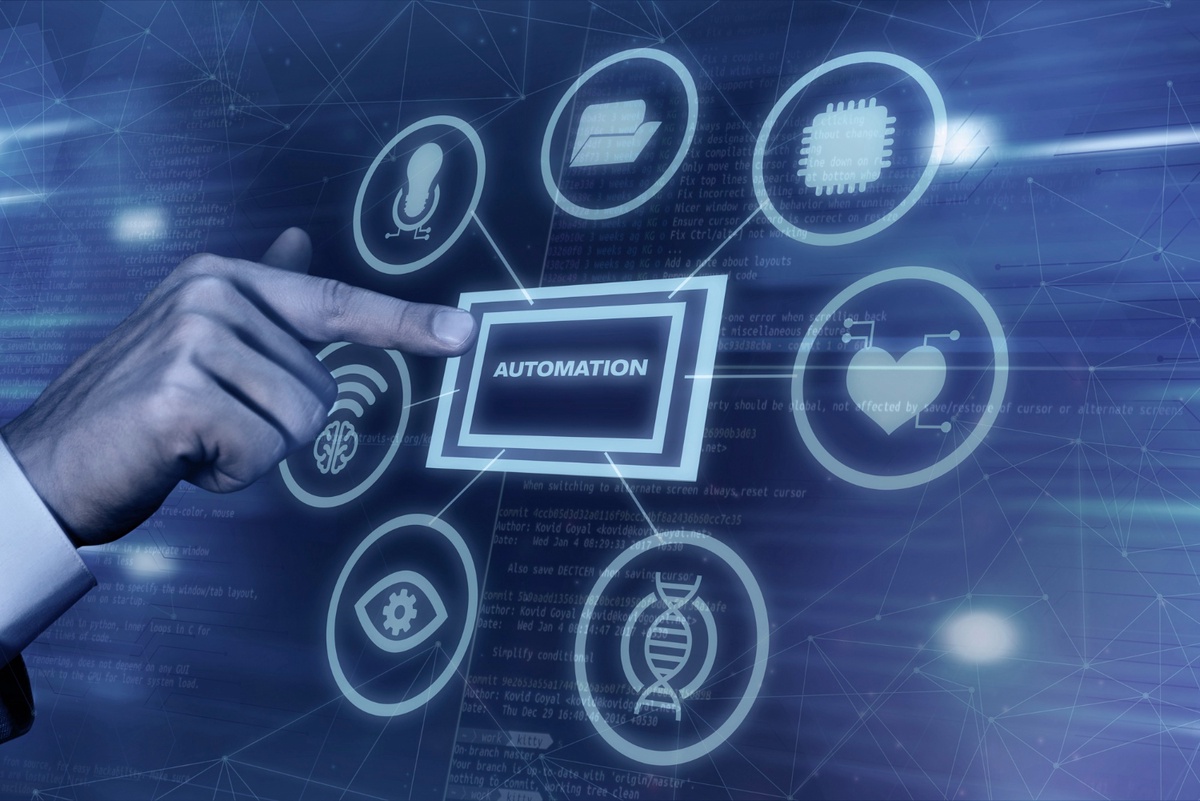For industries, automation means a simple or complex task is done automatically, and yes, it is true. Every organization is looking for an effective and efficient workflow for success in this competitive industry landscape.
The integration of AI in industrial automation can be a transformative force. It can be a game changer for various businesses, offering unparalleled opportunities to streamline operations, enhance productivity, and allow businesses to stay ahead of the competition. However, this integration is a strategic approach for those businesses seeking sustainable growth.
Impact of AI in Industrial Automation
Increase efficiency product development: Artificial Intelligence enhances production procedures, resulting in notable increases in productivity. AI algorithms are able to detect errors, streamline processes, and reduce unwanted time by evaluating data from sensors and production systems in real-time. Therefore, operations run more smoothly as a result, and resources are used more effectively.
Better quality: AI is essential to providing the quality of the product. It has the ability to identify flaws and irregularities in items with a degree of precision that exceeds human capacity by utilizing computer vision systems and machine learning algorithms. This saves businesses time and money by lowering the possibility of recalls and rework in addition to improving product quality.
Minimise risk and ensure safety: Connect with the best AI development company and leverage AI to increase worker safety by detecting and reducing errors. It predicts possible errors and can spot possible equipment problems before they happen, averting mishaps and guaranteeing worker safety. AI can also spot any risks and, take preventative action, and deeply look at employee activities.
Flexibility: AI enables greater flexibility in manufacturing processes. If we look at traditional manufacturing systems, they are often rigid and require significant time and effort to reconfigure for new products or processes. With AI-powered systems, it can adapt quickly to changes, allowing companies to respond rapidly to shifting market demands.
Better decision-making: Leveraging AI, organizations can make better decisions with data-driven insights. AI can even help businesses plan production, manage inventories, allocate resources with massive amounts of information, and spot patterns and trends that humans might miss.
Innovation in new product: AI innovation in manufacturing is possible with creative and new products, procedures, and business plans, creating completely new manufacturing processes that can impact overall business that has never been done before.
Also Read: The Role of AI in the Travel Industry
Applications of AI in Industrial Automation
Autonomous Robots: AI systems can evaluate sensor and equipment data to forecast when maintenance is required. It can even detect equipment errors before they happen and maintain expenses by identifying abnormalities and trends in data.
Supply Chain Optimization: AI can effectively analyze data from manufacturers, distributors, and suppliers to optimize supply chain operations. It supports organizations in reducing costs, providing efficiency, and streamlining the supply chain for businesses.
Quality Control: AI-powered systems can quickly identify the errors in the products. These systems provide only high-quality products that make it to market by using machine learning algorithms to spot flaws based on the products.
Predictive Maintenance: AI systems successfully evaluate sensor and equipment data to forecast when maintenance is required. This system can even identify the real problems before they happen by closely looking at the trends and real-time data.
Summary
The impact of AI on industrial automation is that it is really effective and productive. It revolutionized the manufacturing sectors by delivering efficiency, innovation, and safety in product development. AI applications and machine learning algorithms support the industry in analyzing the data and making effective decisions. Overall, the role of AI in industrial automation is transformative and effective.


No comments yet